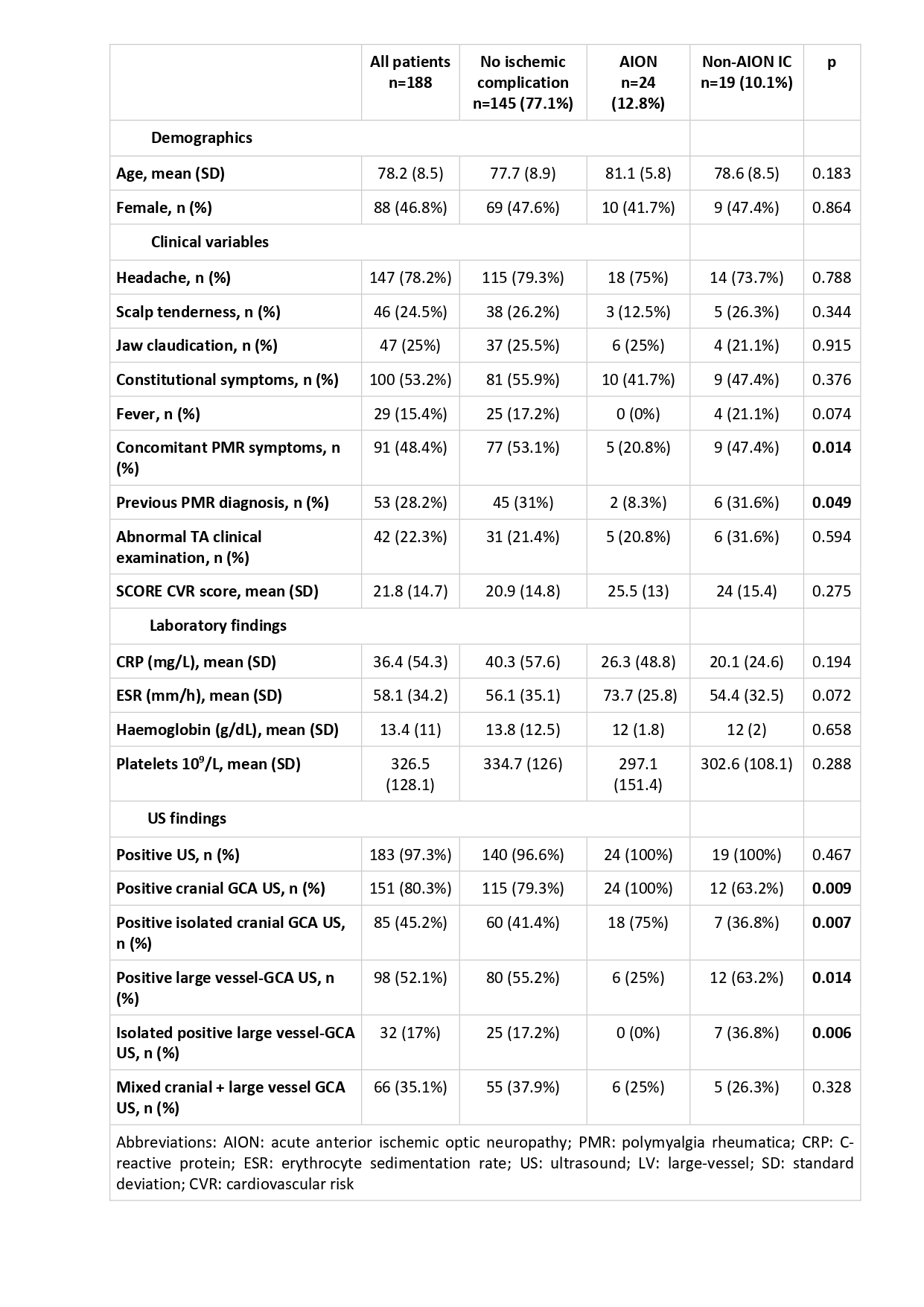Session Information
Date: Saturday, November 16, 2024
Title: Vasculitis – Non-ANCA-Associated & Related Disorders Poster I
Session Type: Poster Session A
Session Time: 10:30AM-12:30PM
Background/Purpose: To determine if the subtype of vascular ultrasound (US) presentation is associated with different types of ischemic complications (IC) in giant cell arteritis (GCA).
Methods: Retrospective observational analysis of GCA clinically confirmed patients referred to US fast-track clinics at two centers. All patients underwent baseline US of cranial and extracranial arteries (carotid, subclavian and axillary). Two patterns of IC were analyzed: the occurrence of acute anterior ischemic optic neuropathy (AION) or the presence of a non-AION pattern (including stroke, acute coronary syndrome, pulmonary embolism or peripheral artery disease) at diagnosis and in the following 3 months, excluding other potentially implicated causes.
Results: Of 188 clinically confirmed GCA patients, 43 (22.9%) had IC: 24 (12.8%) AION and 19 (10.1%) non-AION. Patients with AION more often exhibited US cranial involvement versus those with non-AION IC and without IC (100%, 63.2%, and 79.3%, respectively; p=0.009). Patients with AION less frequently presented signs of US large vessel (LV)-GCA than those with non-AION IC and without IC (25%, 63.2% and 55.2%, respectively; p=0.014). Patients with previous polymyalgia rheumatica (PMR) (p=0.049) or concomitant PMR symptoms at the time of diagnosis (p=0.014) showed less frequent AION. In contrast, patients with non-AION IC more frequently had positive LV-GCA US findings vs the other two groups (63.2%, 25% and 55.2%, respectively; p=0.014).
Conclusion: The subtype of vascular US presentation influences the IC in GCA. US cranial-GCA patients more frequently present AION, while predominantly US LV-GCA more frequently exhibit non-AION IC.
To cite this abstract in AMA style:
Amar Muñoz H, Molina-Collada J, Castrejon I, monjo i, Fernández-Fernández: E, Álvaro-Gracia J, De Miguel E. Different Giant Cell Arteritis Phenotypes May Present Distinct Types of Ischemic Complications [abstract]. Arthritis Rheumatol. 2024; 76 (suppl 9). https://acrabstracts.org/abstract/different-giant-cell-arteritis-phenotypes-may-present-distinct-types-of-ischemic-complications/. Accessed .« Back to ACR Convergence 2024
ACR Meeting Abstracts - https://acrabstracts.org/abstract/different-giant-cell-arteritis-phenotypes-may-present-distinct-types-of-ischemic-complications/

